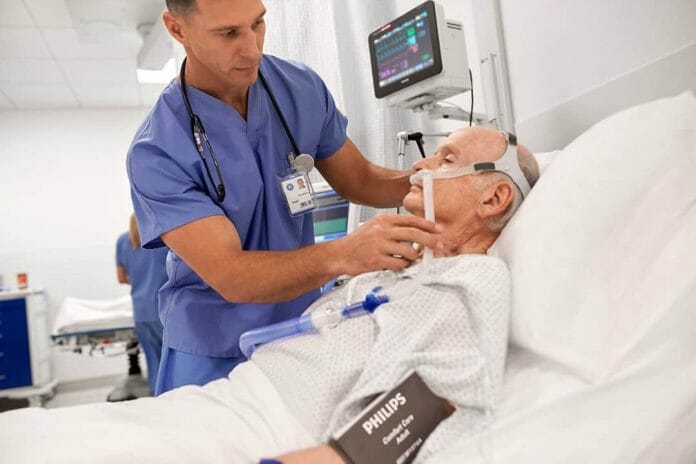Business Today through an email interview with Philips, the Dutch health technology company, finds out their efforts in managing production of critical care products and solutions during this challenging time.
By Sharon Chang
The shortage of ventilators is inevitable. Runaway demand for ventilators has laid bare the grim reality for healthcare professionals who need them to treat patients impacted with the unprecedented Covid-19 pandemic.
“While we acknowledge that there is an unprecedented global demand for medical equipment to help diagnose and treat patients with the virus, we have also put in protocols to ramp up efforts to meet these demands,” Philips says in an emailed response to questions from Business Today.
“As a global leader in health technology, our effort is to prioritise increasing the production of certain critical care products and solutions.
“We are working around the clock to double our hospital ventilator production within the next eight weeks and are aiming for a four-fold increase by the third quarter.”
Given the circumstances, such as shortage of parts due to the disruption of the supply chain and the lockdown implementation, Philips says they are working closely with their suppliers to secure materials supply to feed the increased production at their manufacturing facilities.
In addition, Philips is leveraging on its innovation capabilities to re-purpose adjacent product ranges and, also, engaging with third party contract manufacturers to address the increased demand.
“Furthermore, we are also hiring additional manufacturing employees and adding manufacturing lines and increasing the current work shifts to 24/7 shifts,” it says.
Philips says that currently, the most needed products are patient hospital (portable) ventilators and medical consumables for non-invasive and invasive ventilation to treat a broad range of respiratory conditions.
Meanwhile, Philips is hoping to increase production of other equipment critical in the fight against Covid-19, such as vital signs monitors, diagnostic imaging systems and software solutions for hospitals to monitor and manage patients in intensive care units.
“These will help our frontline medical teams address the preparedness, response and recovery needs from diagnosing to assessment of respiratory conditions,” it explains
In a response to questions, Philips says, “For a more data-driven and connected approach, we will explore how we can leverage our hospital telehealth solutions to centrally monitor and manage patients in the intensive care unit (Philips eICU program), and solutions to connect caregivers and patients at home.”
Philips adds that their ventilators are designed to be easy-to-use and simple to maintain.
The intuitive, graphical user interfaces and menus are created to simplify ventilator set-up and boost productivity. Advanced, automated features, such as mask auto-calibration, can save time, and built-in monitoring alerts you to patients’ changing conditions.
Together, these advances can help to improve workflow.
“Backed by our deep clinical knowledge, our hospital ventilators and masks are developed using only high-quality parts,” Philips shares, adding that their ventilators, patient-friendly masks and accessories deliver non-invasive ventilation (NIV).
Government needs to act
In line with the recent call to action by the International Chamber of Commerce (ICC) and World Health Organization (WHO), Philips says they are calling on governments to facilitate enhanced access to critical materials and components by not imposing restrictions such as export controls and tariffs.
“Besides, the government must also provide help to accelerate logistics, as well as exemptions for critical suppliers from lockdown measures,” it says.
Critical medical equipment, such as hospital ventilators and patient monitors, should be made available across the world, Philips believes, adding that priority should be given to those communities and countries which need them the most,
And most importantly, use a fair and ethical approach to allocate supply to acute patient demands based on data such as the Covid-19 risk-classification of a country/region.
Light at the end of the tunnel
Despite these turbulent times, the company has been able to continue its global business operations and serve its customers, according to Philips.
However, the impact of the outbreak on public life and industry in the most affected regions is resulting in a decreased demand for Philips’ consumer portfolio and is affecting Philips’ global supply chains.
While this is expected to have a negative impact on the financial performance in the first half of 2020, the company cannot quantify the magnitude and duration of such impact at this time given the continued fluidity of the situation.
Philips continues to monitor and assess its business operations daily and will provide an update as appropriate.









